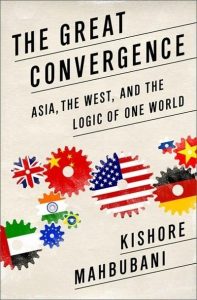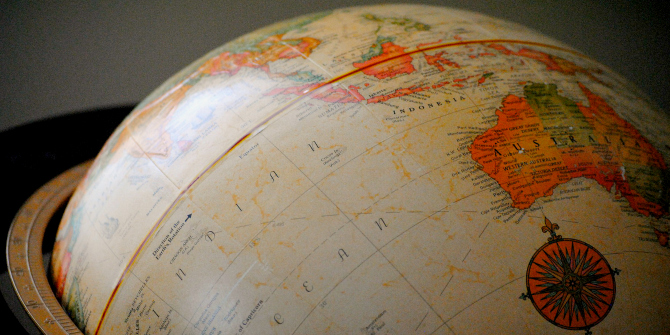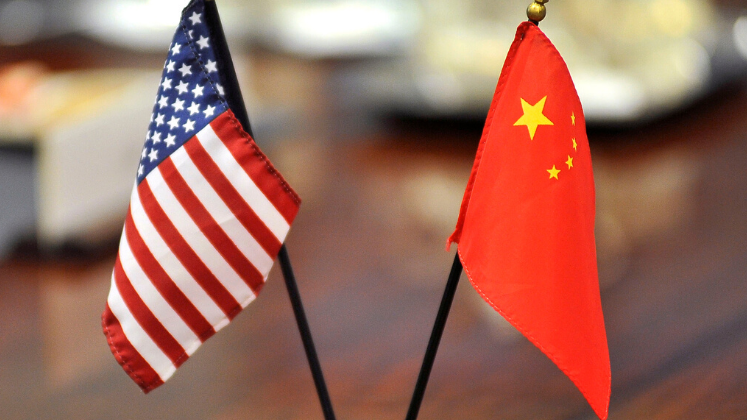In The Great Convergence, Kishore Mahbubani’s reflections on the shifting world order, the future of international organizations, and the prospects for progress on key global issues are relevant and provocative. However, their discussion constitutes a small share of an unbalanced, repetitive volume that rehashes establishment views on globalization without breaking new ground, writes Jonathan Ossoff.
The Great Convergence: Asia, the West, and the Logic of One World. Kishore Mahbubani. Public Affairs. January 2013.
In The Great Convergence, Kishore Mahbubani attempts a manifesto on the future of world politics. Singapore’s former UN ambassador proposes a “theory of one world”, urging leaders to acknowledge converging global interests and values and to embrace a more multilateral world order. He argues that US and European dominance of international affairs must abate as new powers rise and outlines major trends, risks, and opportunities.
Mahbubani’s perspective on the changing configuration of world power and the future of international organizations is timely and provocative. But for most readers – already thoroughly steeped in globalization jargon and familiar with the most obvious political, economic, and technological trends – Mahbubani’s reflections are old hat. This lack of originality and a lack of balance undermine the work, for this reviewer at least.
Mahbubani opens with an optimistic review of human development. He proclaims the birth of “a new global civilization”, citing “fewer wars and combat deaths”, a “steady decline in absolute poverty and its effects”, “a more educated world population”, and “more people joining the middle class”. He observes “increasingly common patterns of behavior among policymaking elites” informed by common “acceptance of the frameworks of modern science, reliance on logical reasoning, embrace of free-market economics, transformation of the social contract between ruler and ruled, and increased focus on multilateralism”.
This rosy assessment counters the pervasive gloom-and-doomism that belies the record of human progress since World War II. Yet Mahbubani’s confident predictions of enduring peace and prosperity – “wars among major powers have become a sunset industry” – may downplay risks of resurgent nationalism, populism, or resource scarcity. Similarly, his contention that governments around the world are “converging on a certain set of norms on how to create better societies” minimizes world powers’ divergent views on individual rights, political freedom, and the economic role of the state.
Despite his uplifting point of departure, Mahbubani proceeds to bemoan the insular priorities of contemporary politicians, whose focus on short term national interest prevents policymaking in the global interest. They lack, he proposes, the necessary intellectual framework. To fill this gap, he offers a “theory of one world” defined by “four key pillars of convergence — environmental, economic, technological, and aspirational — that are driving humanity to acknowledge that we live in one world.”
This thin theory amounts to little more than a standard description of globalization. Beyond proposing to enhance the authority and legitimacy of international organizations, Mahbubani neglects to describe how policymakers could be induced to take the long, global view in the face of competing immediate national priorities. For example: he implores, “The minds of leading policymakers must focus on the single global economy as the first priority.” But how? Does he expect politicians to be so moved by his exhortations that they will neglect the immediate interests of domestic constituencies that empower them?
This crucial missing link never materializes. Instead, Mahbubani wastes pages on Tom Friedman-esque banalities about globalization. He notes the spread of market-based economic ideology, intensifying interdependence and cultural convergence as a function of “cell phones, computers, and aircraft,” that “we all live together in a small global village,” that global challenges require global solutions. Such truisms consume an appalling share of the reader’s time. The Davos set has recited the same cliches at conferences and university speeches for more than a decade, yet the tired narrative is presented with the airs of a visionary navigating intellectual terra incognita.
The latter half of the volume, a critique of US and European foreign policy and a rundown of pressing global issues, is more effective. Mahbubani observes that increased economic and political empowerment of historically marginalized states and societies will make unabashed North Atlantic domination of the UN, the IMF, and the World Bank untenable. He argues that the United States would better pursue its interests by enhancing, rather than undermining, international institutions like the UN and the ICC. He details a provocative proposal for reform of the UN Security Council, where he represented Singapore.
Mahbubani’s digest of key global issues includes the rise of China and India, US-China relations, Asian maritime disputes, interreligious and sectarian conflict, the Israeli-Palestinian conflict, and the global environmental crisis. It is hardly an innovative list, but the reflections are timely, provocative, and well informed.
Throughout, Mahbubani’s kid-glove treatment of China hurts the volume’s credibility. While he unsparingly attacks US policymakers for jealously guarding national sovereignty, their relentless pursuit of national interest, and their inconsistent record on human rights, he fails to acknowledge that China’s record is worse in all three categories. His decision not to criticize Chinese authoritarianism and assess its implications for the future of human freedom reflects either a deliberate lack of balance or a blasé attitude toward individual rights. Singapore’s diplomats are famous for shrewdly balancing complex relationships with the US and China. Such balance is absent here. Mahbubani has gone out of his way to present a narrative sympathetic to the Chinese leadership, it is clear to this reviewer.
Mahbubani’s reflections on the shifting world order, the future of international organizations, and the prospects for progress on key global issues are relevant and provocative. But their discussion constitutes a small share of an unbalanced, repetitive volume that rehashes establishment views on globalization without breaking new ground. For readers with limited time, a few reviews will more than suffice.
Note: This review gives the views of the author, and not the position of the LSE Review of Books blog, or of the London School of Economics.


 Find this book:
Find this book: 





1 Comments